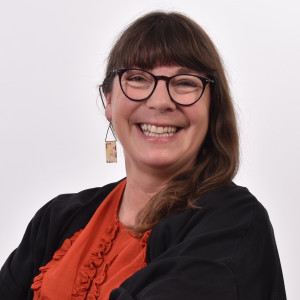This thought piece is part of a series sharing key insights from Constellating Change, our 2023/24 learning and practice series that shone a light on the dynamics and patterns of organising for systems change. It is written by Louise Armstrong, a collaborative network partner at the School of System Change.

Perhaps more ambiguous than other topics in this series, yet something we can all relate to, is the idea of the many roles we play in life. This session explored how we can harness the different ways people can contribute to our change work through embracing the variety of roles we can each play over time. For this conversation, we were joined by contributors Samantha Slade and Siana Bangura.
Meet Our Contributors
Beyond the Binary: Embracing Plurality and Fluidity
While it's easy to default to job titles or the roles we feel most comfortable with, it's crucial to challenge these notions and binaries of single identities. By inviting plurality and fluidity, we can challenge assumptions and frameworks that keep us stuck. This is particularly important as people bring so much of themselves, both seen and unseen, to change work.
Our contributors for the session modelled this beautifully, with their expansive roles and identities creating the backdrop for the conversation.
Samantha Slade, whose roles include being Co-director at Percolab Coop, a strategist, facilitator, and practitioner - curious about all things collective governance and participatory leadership. And Siana Bangura is a wearer of many hats and roles, including being a writer, producer, campaigner, and systems change practitioner. Siana spoke about why knowing the role you play in changemaking is important to your story, referencing the social change ecosystem map framework, developed by Deepa Iyer in 2017, as being a key resource for her being able to do this.

The Words We Use
There was a lot of talk in the session about the limitations of language. Job titles can be coded and bound up in a whole set of assumptions and projections which can be restrictive. Job descriptions are fixed, can become limited and create stuckness - Samantha spoke about ‘role stewards’, an approach they use as Percolab to create more of a dynamic conversation about roles needed over time to enable people’s energies and skills to become more aligned and in service of the work. A few different groups have used and adapted this approach since the session too - both to plan a new piece of work or as a team reflection activity to review what did or didn’t work.

Go with the Energy: Embrace the ‘No’
It is key to be honest with yourself and your team about the energy and capacity you have. Understanding your own needs and desires and honouring them while managing collective responsibilities can feel like an increasingly delicate balance. Just because you’ve played a role before, doesn’t mean you always want to, or have to. Learning to celebrate the ‘no’ and intentional non-involvement is just as important as ‘doing’ more. Enabling this, Siana spoke on the importance of nurturing a support network - people who hold you “accountable in a compassionate way.”
Diving further into this topic brought up explorations and questions around identity, and seeing the ability to work with cycles as a useful underlying practice for this. The ability to let go, allowing parts of us to die that are no longer serving us, and creating and inviting new roles in, makes for a great practice ground for this.
Thank you to session participant Fanny Monod-Mitrev for this beautiful scribing illustration of our time together:

Learning and Practice Invitations
- Use the social change ecosystem map (developed by Deepa Iyer in 2017) to reflect on the roles you play. How might you craft and evolve your own narrative of yourself to better reflect reality? Siana offered these reflective questions during the session:
- What role(s) do I feel comfortable and natural playing? And why?
- What role(s) am I often asked to step into by others? How do I feel about assuming those roles? And why?
- What is the impact of these roles on me physically, emotionally, and spiritually? And is there an impact on others as a result?
Deeper Dive Resources
- Blog: Tana Paddock, ‘Learning in Relationship’ (2010). Published on Organization Unbound.
- Report: The Barefoot Guide, ‘Learning Practices in Organisations and Social Change’ (2010). Published on The Barefoot Guide Connection.
- Article: Microsolidarity, ‘From Domination to Partnership’ (2022). Published on Microsolidarity Gitbook.
- Resource hub: The Relationships Project, ‘Relationships Resource Repository’ (2023). Published on the Relationships Project website.
- Book: Nora Bateson, Combining (2023). Published by Triarchy Press. The book touches on aspects of relational learning.
- Blog: Anna Birney, ‘Working in the Marshlands’ (2022). Published by the School of System Change on Medium.
- Blog: Anna Birney, ‘Learning is Change’ (2023). Published by the School of System Change on Medium.
- Framework: Tamarack Institute, ‘Triple Loop Learning’ (2017). Published on the Tamarack Institute website.
- Blog: Richard Bartlett, ‘No More Drama at Work: How to Build a Feedback Culture (2023). Published via the Hum.

Written by Louise Armstrong
If you're interested in bringing this learning into your organisation or network, get in touch with Sean, our Learning and Practice Partner Lead. To keep inquiring with us as we explore more themes, subscribe to the School newsletter for systems change insights, inspiration and resources.








